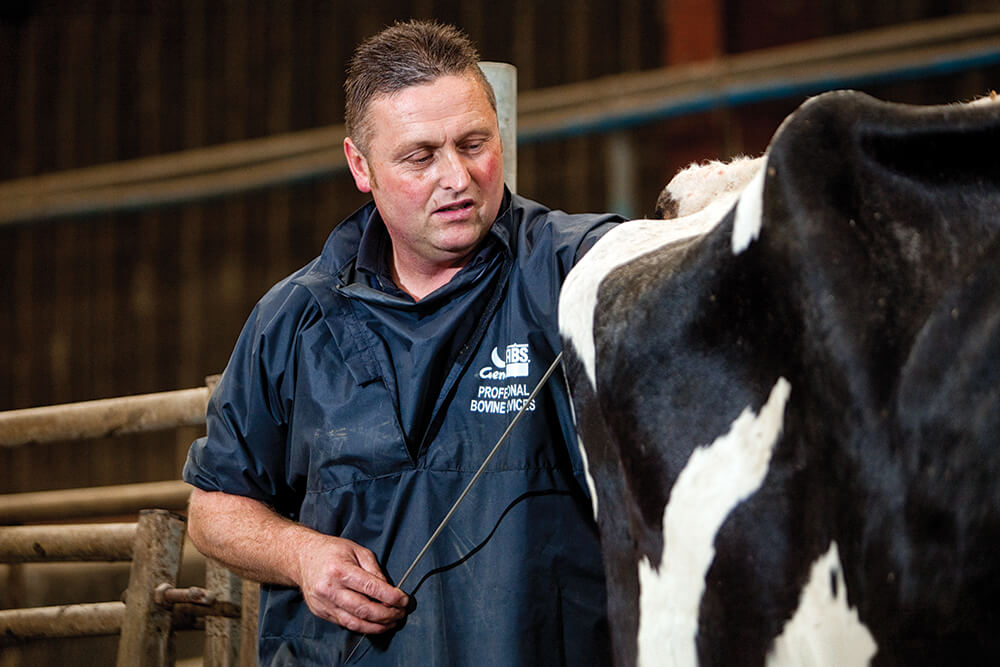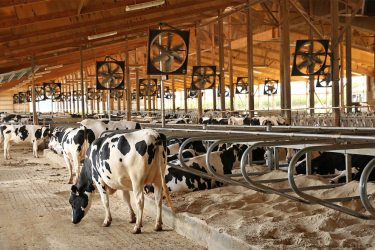A hot topic phrase in recent years within animal agriculture is animal health and welfare. Most people on this planet strive to do right when it comes to caring for animals. With any situation in life, it is oftentimes the decisions of a few that ruin the reputation and trust of a whole group.
Contrary to what some believe, animal agriculturists, specifically those involved with livestock, view protecting an animal’s health and wellbeing not only as a moral responsibility, but as their purpose in life. Their livelihood depends on following strict protocols for animal health. Their compassion towards the animal is vital to the success and sustainability of their operations.
[Read More: Fertility]
The health of an animal directly correlates to their productivity. Their productivity is influenced by their genetic ability and environmental factors. A dry, clean, and disease-free environment is a keen place for an animal to maximize its productivity. The noteworthy thing about disease is that it does not discriminate for animal’s genetic potential. On a dairy, a high-ranking animal in your herd’s system can be equally plagued by disease potential as your lowest ranking animal.
Today, bovine respiratory disease (BRD) is one of the most common and costliest diseases affecting the dairy and beef industries. Even the most precautious of farmers and livestock producers cannot always slip through the grasps of BRD. BRD can have catastrophic repercussions, if not fatal to an animal. Symptoms include extreme difficulty breathing, high fever, and nasal and/or eye discharge. If an animal is able to “beat” the viral and bacterial pathogens of BRD, the animal’s respiratory usually is compromised and presents an uphill battle for the animal for its entire life.
Gene Editing
However, there is great optimism for advancements in breeding technologies like gene editing to minizine the destruction caused by disease. These technologies could help increase the animal’s resistance to BRD and, potentially, similar diseases. Gene editing is the cleanest and most wholesome way to improve animal health and protection against possibly fatal diseases.
Gene editing provides an opportunity to reduce the need for vaccine and antibiotic administrations. This promotes animal health and wellbeing from all sides, ultimately. Animals could have higher quality of life with less illness and unintended suffering. Think of gene editing as being proactive rather than reactive.
[Read More: Gene Audit]
The Evolution of Historic Practices
In simple terms, gene editing could be placed in the same category as genetic selection. Genetic selection has been occurring since the beginning of time. The term you might be looking for is survival of the fittest. Genes from the animals that survived stayed in the population. Genes from those that did not were lost entirely.
Even before Gregor Mendel introduced the concept of genetic inheritance, farmers were unknowingly selectively mating animals for preferred genetic traits. The healthiest and most productive parents created the most reliable food source in their offspring. Gene editing is simply an evolution of what farmers are already doing.
Tweaking Genetic Code: How does it work?
In gene editing, scientists make precise tweaks to genetic codes. It can be thought of as the “find and replace” feature used on computers to correct misspellings in word documents. An animal’s DNA is made up of genetic strands that have codes written in them which tell the cell how to act. Gene editing searches and modifies specific nucleotides within DNA.
Naturally occurring genetic mutations can be improved with gene editing. Revisions in the DNA can help disable harmful genes or correct mutations responsible for disease development. In our BRD scenario above, the removals of a piece of DNA responsible for the interaction with a virus or enabling virus movement or replication could allow the cells to be virus free. Thus, gene editing aids in animal health and wellbeing through potential disease resistance animals.
[Read More: Tag Team]
Gene editing is helping biology do what happens normally, just a little bit faster.
Learn more about the future of animal health by reading our article originally published in Progressive Dairy.






